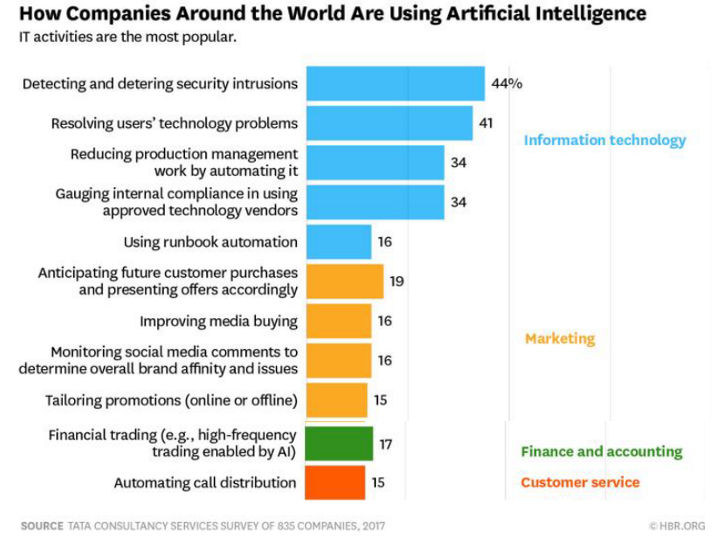The Impact Of AI/Machine Learning On Workforce Capability: Advanced HR/L&D Mindset And Skill Set
The Automation era which has been called the ‘fourth industrial revolution’ – is driving new ways of doing business often at the cost of traditional businesses. When it comes to emerging technologies, numerous companies are investing in Artificial Intelligence (AI) as it is said to be the future. With an increasing speculation of mass disruption of job roles, in the next 10 – 20 years, will there be anyone left for Learning and Development to train and develop? What does the future hold for HR/L&D professionals and how can we best adapt to the coming changes?
The application of AI/ML will reshape the job market and will eventually create smarter jobs and roles that we can’t even imagine today. Reskilling the workforce and reforming learning and career models will play a critical role in facilitating this change.
Artificial Intelligence / Machine Learning: New Drivers Of Employment And Organizational Learning
We are on the brink of this new era, where humans and technology are so interconnected that we are unable to achieve outcomes without them. As AI continues to grab media headlines, we try to survey its practical use in business and workplace learning. Is the fear of Artificial Intelligence/Machine Learning (AI/ML) surpassing human capability justified? What are the uniquely human capabilities that only we can provide and what will this new world bring in terms of the creation of new roles for HR? How can L&D support the rapid and complex learning needs in this new automated environment?
A recent survey on our webinar on Impact of Artificial Intelligence/Machine Learning on Workforce Capability highlights the effects of new and emerging technologies like AI/ML and what this will require of HR/L&D teams. Our survey also reflects some of the possible future implications of AI/ML assistance in our day to day work. A survey of 65 Learning and Development and HR Professionals.
• 56% feel that AI/ML will substantially or moderately impact their job in the next 2 years.
• The survey also found that 57% said they know very little about AI/ML and how it could change the way they do business.
• 55% feel AI/ML will partially replace HR/L&D, while 19% feel they could be completely over powered by it.
• 39% feel AI/ML will affect HR/L&D the most in tasks related to making recommendations about learning and job roles, whereas 27% feel AI/ML will supersede them in embedding learning in the workplace. While the stats naturally represent the impact of AI/ML on HR/L&D roles, it also predicts a decline in the number of professionals to be employed.
• 38% said experimenting with Al is the best way HR/L&D can tackle its influence, followed by 25% who felt teaming up with AI experts in the business is a better way forward.
The Robots Are Coming to Threaten Jobs
A study from two major consultancies released October 4th revealed that IT leaders believe automation could impact 60% of businesses by 2022 and threaten jobs in the process. Now, a new, separate report from the second biggest professional services firm worldwide, suggests a similar timeline; one in which people may need to practice and learn new skills — or be left behind as automation takes over.
The report, surveyed 10,000 people across China, India, Germany, the UK, and the U.S. to “better understand the future of work.” Of those, nearly 37% think artificial intelligence and robotics will put their jobs at risk; in 2014, 33% had a similar concern.
A startling scenario the report envisions for the future is one in which “typical” jobs — jobs people can steadily advance in through promotions — no longer exist, prompting the aforementioned move to develop new skills.
“It varies a bit by industry,” explains a leading authority, “but over the next five years we’re going to see the need for workers to change their skills at an accelerating pace.” If the report’s results are anything to go by, people are ready for change: 74% expressed a willingness to “learn new skills or completely retrain in order to remain employable in the future.”
As of March 2017, a report says about 38% of U.S. jobs are at risk of being affected by automation by the early 2030s, with Germany closely behind at 35%; the UK at 30%; and Japan at 21%.







